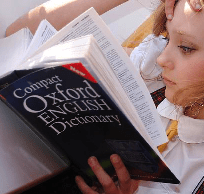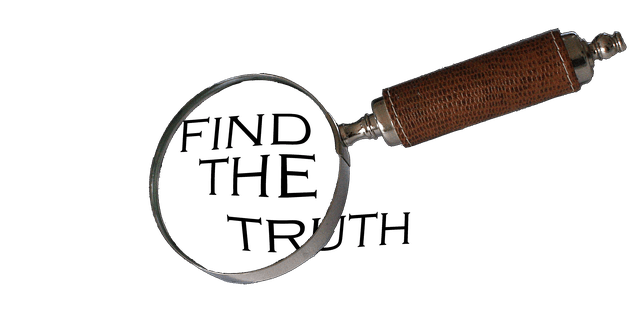What is the TSA Critical Reasoning Test?

The TSA Critical Reasoning Test is part of an exam called the Thinking Skills Assessment, which applicants to Oxford need to take as part of the application and entrance process. Cambridge applicants take similar exams called the NSUA or TMUA.
This page is dedicated to critical reasoning skills. If you need TSA practice for the Oxford or Cambridge entrance exams, you will find free sample practice test questions in the next section.
TSA Critical Reasoning Skills Questions
These sample TSA practice test critical reasoning skills questions have been adapted from past papers. You will find the answers to the questions in the next section.
Sentence relationships

Sentence 1: The law of perpetual motion states that objects in motion will remain in motion.
Sentence 2: Once a vehicle has gained momentum, it will stop only if the brakes are applied.
What does the second sentence do in relation to the first sentence?
A. It applies the theory mentioned in the first sentence.
B. It restates the theory mentioned in the first sentence.
C. It gives a solution to the problem described in the first sentence.
D. It contradicts the evidence provided in the first sentence.
Lexical support for claims

This line of inquiry is wholly improper and argumentative. It is not a statement as to what the issues are. Your Honour has already held that this act is constitutional, it being the law of the land. There is but one issue before this court and jury, and that is, did the defendant violate the statute. If Your Honour would please consider that some of the witnesses in this case are not very well and others are awfully ignorant. Furthermore, we have just agreed among ourselves to disregard the so-called evidence and argue the case. (adapted from the Scopes Trial)
Within the selection, words such as “improper,” “argumentative,” and “ignorant” are used to support the speaker’s intention to:
A. placate the opposition.
B. reconcile differing points of view.
C. dispense with the current line of questioning.
D. offer further evidence to support his argument.
Evidence for claims

Imagine that you are writing a paper that argues that only children often suffer from loneliness when they are growing up.
Which of the following sources of evidence would least support your argument?
A. Interviews with only children.
B. Quotations from famous people who grew up in large families.
C. Reference to recent research that describes the emotional aspects of loneliness.
D. A quotation from an eminent psychologist who has worked with only children.
Authority of claims

Howard Gardner’s theory of multiple intelligences is widely used today in educational settings (Terada, 2018). The theory of multiple intelligences is now rapidly replacing the intelligence quotient, also known as IQ. Long considered the only valid way of measuring intelligence, IQ is a less efficacious way to gauge intellectual faculties since it reinforces many social and cultural stereotypes. Recent psychometric research indicates that there has been a movement away from the IQ test, which is now seen as an indication merely of a person’s academic ability. The theory multiple intelligences is more useful than that of IQ because it measures practical skills such as spatial, visual, and musical ability.
Which of the following best contributes to the authority of the claims in the selection?
A. the use of academic vocabulary
B. the reference to recent psychometric research
C. the use of descriptive adjectives
D. the cited reference to Terada
Counterarguments

Read the selection below and then answer the question.
After the college made attendance at humanities lectures optional, the number of absences from humanities lectures increased. Therefore, attendance at these lectures should be made mandatory once again.
Which of the following is the best counterargument to the selection?
A. Attendance at humanities lectures is never going to increase because students realise that these classes are “soft” options.
B. It can be difficult to concentrate during humanities lectures, so these lectures should be dropped in favour of small group seminars.
C. There may have been other factors that influenced the decline in attendance at humanities lectures, other than the attendance policy having been changed.
D. Attending humanities lectures is important because it instills self-discipline in students.
Answers to the TSA Practice Questions
Sentence relationships – Answer

The correct answer is A. The second sentence deals with only one vehicle, not all objects. So, the second sentence applies the rule mentioned in the first sentence to one specific situation. Therefore, we cannot say that the sentences restate the same idea.
Lexical support – Answer
The correct answer is C. The speaker uses the words “improper,” “argumentative,” and “ignorant” to dispense with the current line of questioning. In other words, he is asserting that there should be no further discussion of the issues of the case. The selection tells us that the judge has ruled that the evidence be disregarded, so we know that the speaker is not offering further evidence.
Evidence for claims – Answer
The correct answer is B. Remember that reference to specific research will have more authority than other sources. However, also bear in mind that your reference must be relevant to your topic. If you are discussing only children, you would not want evidence to support large families. Therefore, answer B provides the least support.
Authority of Claims – Answer
The correct answer is D. The name of a particular researcher with a citation with the name and date is much more authoritative than reference to research studies in general. Note that vocabulary and adjectives, as stated in answers A and C, do not usually add to the credibility of information in a selection.
Counterarguments – Answer
The correct answer is C. When a question asks you for a counterargument, you need to ask yourself what situation or evidence would cast doubt on the assertion made in the selection. In this question, the selection is asserting that attendance should be made mandatory due to the increase in absences. Bringing up other factors that may have influenced the attendance would cast doubt on the assertion since the assertion implies that the increase in absences is solely attributable to the change in the attendance policy.
TSA Problem Solving Skills
The TSA exam has to parts: problem solving skills and critical reasoning skills.
As the name suggests, the problem solving skills test assesses your ability to find solutions to problems.
Go to the problem solving skills page
More critical thinking exercises
More TSA Critical Reasoning Skills Practice
Practice Questions by Cappfinity
Oxford University Entrance Exam Information
Cambridge University Entrance Assessments
Please note that theThinking Skills Assessment (TSA) is administered by the University of Oxford, which is not affiliated with nor endorses this website.